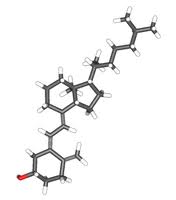The winter is finally here! The weather is colder and the sun sets before most of us even leave the office. How do you know if you are getting enough vitamin D and how much should you consume?
Dr John Cuomo, Executive Director of Research and Development at USANA Health Sciences answers important questions on why this vitamin is so important to the optimum functioning of the human body:
What are the main functions of vitamin D in the body?
Vitamin D appears to have many functions in the body. Every cell, regardless of where it is located has a vitamin D receptor. This would indicate that vitamin D has multiple functions and the scientific evidence backs this up. The best documentation of the importance of vitamin D is in bone health. Absorption and utilization of calcium appears to be a vitamin D controlled process. Other minerals including magnesium, boron and silicon may also depend on vitamin D to be absorbed and deposited into the bone matrix. The RDA data for vitamin D is based solely on the function for uptake and utilization of minerals for bone health. So while bone health, and prevention of osteoporosis is an extremely important function of vitamin D, it is part of what makes vitamin D important to your health. There are numerous studies showing that Vitamin D is also essential for overall immune system function and for muscle strength. Epidemiological studies also show links to glucose metabolism, cell proliferation, osteoporosis, osteomalacia, impaired muscle function, infection, autoimmune disorders, diabetes, some cancers and CVD.
What are the best natural sources?
One of the best ways to get vitamin D is to expose your skin to sunlight. 15 to 30 minutes of sun exposure between the peak hours of 10am-2pm will make thousands of IU of vitamin D. Just be careful not to burn. Dietary sources are lower. Some product such as milk and orange juice are fortified with vitamin D, but the dose is usually low and the form is different than from sun exposure. Some fish also have vitamin D but the amounts vary significantly.
-Is the vitamin D in milk etc a chemically made version and, if so, does it differ (like vitamin e) from the natural source?
The story here is a little different than for vitamin E. The form of vitamin D produced in skin naturally from sunlight is cholecalciferol or vitamin D3. This is also the form used in most nutritiona
l supplements like USANA Vitamin D tablets. Milk is fortified with vitamin D2 or ergocalciferol. While it is naturally derived, it is not the same as the D3 that we produce naturally from sun exposure. In addition there are several clinical studies on supplementation with D2 vs. D3, and it looks like D3 is more bioavailable, and a better choice.
What are the best ways to take vitamin D to ensure you’ve taken enough?
Dietary sources are not sufficient. Even though milk, orange juice and fish do contain vitamin D, all of the data we have seen indicates that the vast majority of Americans are vitamin D deficient. The two best ways to get the vitamin D you need are to get adequate sun exposure to exposed skin (without sun block) or to take a good vitamin D supplement. In addition, the only good way to tell if you have adequate stores of vitamin D is to have a blood test run. If your doctor asks for this test, be sure they measure the amount of 25-hydroxy vitamin D in plasma, and the amount should be 40 – 60 ng/mL.
Does sunscreen stop us absorbing vitamin D?
Yes. To make vitamin D in the skin, UV light must hit the skin directly. Sunscreen effectively blocks this, and almost no vitamin D will be produced if you apply sunscreen.
-How often should vitamin D be taken?
A daily supplement of 200 to 500
IU of vitamin D.
Why is vitamin D important?
It supports healthy bones, immune function, muscle strength, glucose control, and may help prevent auto immune disease and heart disease.



